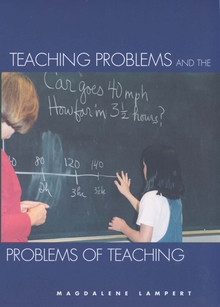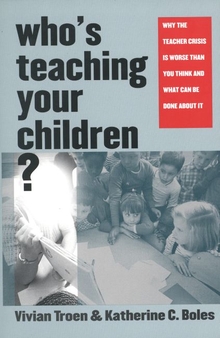Teaching Problems and the Problems of Teaching
WARNING
You are viewing an older version of the Yalebooks website. Please visit out new website with more updated information and a better user experience: https://www.yalebooks.com
Magdalene Lampert
In this fascinating book, an experienced classroom teacher takes us into her fifth-grade math class through the course of a year and shows how classroom dynamics—the complex relationship of teacher, student, and content—are critical in improving student performance. Magdalene Lampert offers an original model of teaching practice that casts new light on the ways teachers can successfully deal with teaching problems.
“Although the setting is mathematics, the value of Lampert’s book is broad, addressing the core issues that face anyone in education. This is one of the most important books about education to appear in the past decade. What Lampert writes is deep and compelling. The story is engaging, even gripping; I couldn’t put it down.”—Jim Stigler, author of The Learning Gap
“Marvellous insight into the teacher’s craft. . . . A well-crafted, modest, richly pleasurable, even gripping, book, that says more about the challenges and pleasures of teaching (and learning) than a host of manuals could. You don’t need to be a mathematics teacher to enjoy it, although once you have read it, you may wish you were. Excellent.”—Michael Duffy, Times Educational Supplement
“This book should be required reading for researchers of mathematics teaching, for teacher educators, and for teachers who wish to develop into reflective practitioners.”—Erna Yackel, Journal of Research in Mathematics Education
“This very readable book is invaluable for teacher preparation colleges.”—Choice
Publication Date: March 11, 2003








